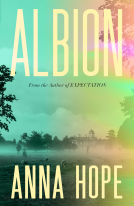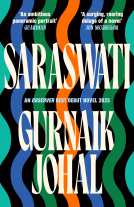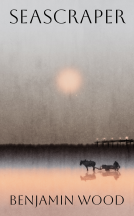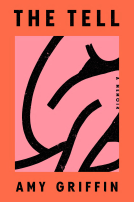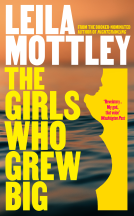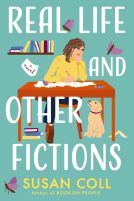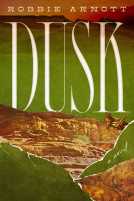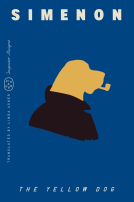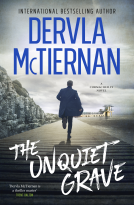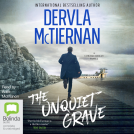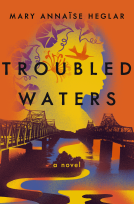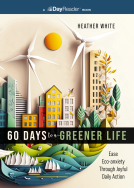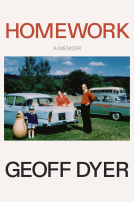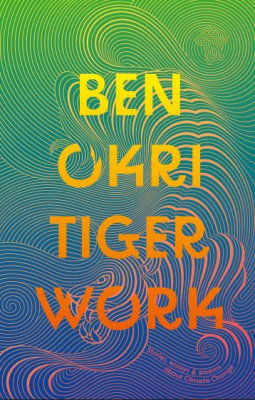
Tiger Work
by Ben Okri
This title was previously available on NetGalley and is now archived.
Send NetGalley books directly to your Kindle or Kindle app
1
To read on a Kindle or Kindle app, please add kindle@netgalley.com as an approved email address to receive files in your Amazon account. Click here for step-by-step instructions.
2
Also find your Kindle email address within your Amazon account, and enter it here.
Pub Date Jul 06 2023 | Archive Date Jul 06 2023
Head of Zeus | Apollo
Talking about this book? Use #TigerWork #NetGalley. More hashtag tips!
Description
Inspired by environmental activism, Tiger Work blends fiction, essay and poetry to make a powerful and very personal appeal for change.
If we continue to live as we do now, Ben Okri argues in this evocative collection, there will be no world left for us to fix. He imagines messages, sent to us from beyond the end, from those who saw it coming – from Africa, Europe, the Americas and the rest of the world – exhorting us to change now.
This is a collection comprising two poems and six prose pieces – three short stories, an essay, a letter, and an interview. It has Ben's classic blend of storytelling, fantasy and magic.
*Please note that this title is under a media embargo until its publication on 6th July 2023*
Available Editions
| EDITION | Ebook |
| ISBN | 9781804545416 |
| PRICE | £8.99 (GBP) |
| PAGES | 128 |
Available on NetGalley
Featured Reviews
 Reviewer 427080
Reviewer 427080
Ben Okris Tiger work is a book that offers a lot: poems, prose stories, essays. The texts are linked by the topic of climate change.
It begins with three parabolas about water. Then a multi-part poem The Broken
Stories follow.
The eponymous poem, which is one of the highlights of the book, is central.
This also applies to the parable-like story The House below.
With The songbirds silence there is even a story for children.
There is also a short interview.
Also worth mentioning is the 11-chapter dystopian tale After the end. There is still a lot to come before the book closes with Anthem.
It is a book that contains many remarkable texts and does not leave the reader indifferent.
A powerful collection of essays, stories, poetry and more. On their own, they are impactful but together it is really strong. Clear messaging, thought provoking and definitely one that will leave you thinking.
Well here was something different. Ben Okri has returned with a new work, a collection of pieces centred around one central theme: climate change. There are short stories, poems, interviews, essays.
Right at the start Okri recommends we "read slowly." I took this work one piece at a time, spending time afterwards to ruminate on the message behind the text. Okri is not didactic here, does not labour his point, but simply shows things as they are, as he sees them, and offers thoughts for the future. This alone makes it an essential work.
It is not a work all will agree with. Climate change is a provocative subject. It is hard, however, to disagree with the central message: that unless we care for what we have now, we will lose it forever.
Not every piece here worked as well as the other, but every one of them had something to take away from them, everyone of them had a moment of beauty. It is a slim volume but it contains multitudes.
Thank you to the publishers and Netgalley for the ARC.
 Jill B, Reviewer
Jill B, Reviewer
Everyone should read this book. It gets the message of the threat of climate change across in such a clear way through poetry and prose. It is so easy for us each to gloss over the impact our individual actions can have on this fragile environment and you can sense the author's frustration as we bury our heads in the sand. It is a captivating but disturbing read that we should all take note of if we're serious about protecting our planet.
 Isabella N, Reviewer
Isabella N, Reviewer
At first, I had no clue what my relationship with this book would be, but I loved it. Not only is the writing beautiful, but it has a powerful message with a significant perspective. Overall, an incredible book that was way more unique than I thought it would be. I will probably think about it for a while.
Lest we perish, lest we lose our only home
Ben Okri, poet, novelist essayist and more, has written an excoriating, impassioned, call to arm our hearts, bodies and souls.
As he repeatedly reminds us, most of us have always had our heads in the sands, ostrich like, in denial, for aeons and generations, in our appreciation and gratitude for this home of ours. Gaia, Mother Earth, all our sisters and brothers who are her children, whom she has nurtured and supported. Our sisters and brothers are not only each human other, but the plants and animals who live on, in, and above her. And even that earth itself, and those ocean beds, the very rocks which are also formed from the matter of organisms that arose time immemorial before us.
Choosing not to see that even taking no active position in the greed, the always dsire for more, and the tendency to ‘other’ every thing, place and person that is not me and mine, may no longer be enough.
Through parable, through story, through the clarion call of poetry, Okri reminds us we must all become warriors, tigers of the heart, in enough love for our earth to protect her, as actively, and tenderly as a tiger does her cubs. We must truly and actively love her, be her lover, be her warrior,
This is a deeply uncomfortable read, in many ways, a kind of ‘J’accuse’ to each and every one of us.
Okri has taken up his arms here, not with a stream of unavoidable data about climate change, global warming, weather disasters, details of lives lost in a stream of ‘unprecented’ extreme weather events. We often glaze over the visceral understanding of such facts. As an artist of language, Okri knows that heart and gut must be engaged, for true involvement.
Time and again, we are reminded that the other we need to love ‘as ourselves’ is all of it. You, me, and all that dances, creeps, crawls, swims, flies, roots and shoots on, in, under and above the extraordinary planet of ours.
We have spent too long looking this gift horse in the mouth, rather than filled with awe and gratitude for this treasure
‘Read slowly’ Okri asks us. If we do, the magnificent riches in the short concentrated book will rightly overwhelm us, giving endless pause for deep thought.
 Pernille K, Bookseller
Pernille K, Bookseller
“Can you hear the future weeping?”
This book is a beautiful, yet absolutely terrifying collection of poems, prose and essays about climate changes, and while it is destined to cause some discussion and debate, it might not be able to safe the planet, but I do believe that we would have a lot bigger chance of doing so if every single human read this book.
It might me cry on more than one occasion. It made me think and reflect upon my own life, the world we live in, and most importantly, it made me want to do better.
I read this collection quickly, turning page after page, because I simply could not stop once I started - even though every single page broke my heart - but at the very beginning of the book the author actually requests that you read it slowly, and I would recommend doing that (if you can put it away) to really take in the message of each text. I, personally, will definitely be re-reading (perhaps even more than once) and this time a little slower, as it was first intended. After all, this is a book with a message so powerful that it doesn’t hurt to have it repeated.
Ben Okri’s new publication "Tiger Work" straddles both fiction and nonfiction and primarily focuses on the environment and climate change, which is what first interested me in the work.
This is my first experience reading a text by Ben Okri, although I have wanted to read "The Famished Road" for many years now and haven’t gotten around to it. After reading this collection though, I’m going to make reading "The Famished Road" a priority because Okri’s writing is fantastic! It's the type of writing to immerse yourself and get lost in!
I’m not a big fan of contemporary/Postmodern poetry, but the poems in the collection, such as those in “The Broken”, including one with the same refrain present in the last poem of the collection titled “Anthem”, are beautiful and moving. Okri’s poems don’t include a lot of poetic devices, so if you’re not a fan of Modernist poetry (or poetry published prior to 1945) or don't enjoy reading poetry that tends to include poetic devices, then the poetry might appeal to you.
I feel that the longer works, such as “Three Parables” (a triptych), “The Last Solitude”, “And the Gods Departed”, “The House Below”, “The Songbird’s Silence”, “Letter to the Earth”, “Existential Creativity”, and “The Secret Source” were more enjoyable to read, and I appreciated the questions that were posed in those works in addition to the assertions that he makes…Even though those assertions feel more like accusations—and rightly so.
Okri’s work in this collection shifts the question of, “Is global warming real?” to: “When is the world going to end?” because I got the sense while reading Okri’s work that the characters and conversations led to only one outcome: the pending devastation and end of the world, and that perhaps that’s not the worst outcome. I’m not going to lie, I don’t disagree. As the world continues to warm up (I swear I just saw some headline in the news about a climatologist saying either that we’re precariously close to the temperature rising to 1.5 degrees warmer or we have already pushed ourselves over that 1.5 degree…Lovely.), Okri’s work couldn’t be timelier. I feel that this is a work that everyone needs to read because I’m convinced that humans need to face up to the terrible truth—including myself. We have only ourselves to blame for killing the only place we have to live, and no one is blameless.
So as I sit and continue to ruminate on this collection, I know I’m going to carry Okri’s words with me for a very long time—and I hope I do. Because to read Okri’s collection quickly, to disregard it as just another environmental manifesto, and to ignore yet another prophetic warning would be doing a great disservice to nature, wildlife, and to our fellow humans, and Okri knows we’re already heading towards disaster. In spite of where we’re taking ourselves, the tone in this collection is (at times) hopeful and powerful. It’s making me reconsider how I live my life. I’ve already given up my vehicle…Now how else may I contribute to an effort to save what we have for the next generation to come?
Many, many thanks to both NetGalley and Head of Zeus (Apollo) for allowing me to read an ARC of Ben Okri’s newest publication "Tiger Work" in exchange for an honest review.
Readers who liked this book also liked:
Mary Annaïse Heglar
General Fiction (Adult), Multicultural Interest, Women's Fiction
